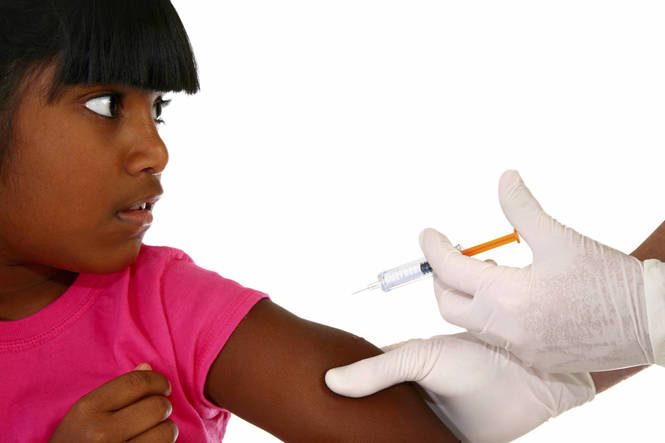One of the biggest frustrations vented by people who work in public health these days is that the most common sexually transmitted infection around – HPV, also known as the human papilloma virus or genital warts – has a vaccine to prevent it.
One in four Americans are infected with the virus, which can lead to cancer, particularly in people with HIV. Almost every sexually active American will contract it at some point through anal, oral, or vaginal sex. Many people clear the virus on their own and do not exhibit symptoms. There are 150 strains of the virus, with some causing anal, cervical, penile or oral cancer and some not.
Yet despite the fact that HPV is everywhere, and can be deadly, uptake of the HPV vaccine is still very low. The vaccine is recommended for boys and girls between ages 13 and 17, but a 2013 study showed only about one in three boys is getting at least one dose of the three-part vaccine, and 57 percent of girls.
Among gay and bisexual men and people with HIV, HPV is even more common, and the vaccination is recommended for those groups all the way up until age 26. As HIV Equal reported earlier this month, cancer is on the rise among people with HIV.
So why aren’t parents protecting their children?
Related HIV Equal News: Why Aren’t Gay and Bisexual Teens Getting Tested for HIV?
Parents don’t like thinking about the idea of their children having sex, so denialist ideas plays into part of the reason vaccination rates are low. And with the resurgence of the anti- or partial-vaccination movements, many parents claim the vaccine’s dangers outweigh its benefits.
That has been scientifically disproven. Repeatedly. But now we know there is an accomplice with parents in sharing the blame of low vaccination rates: Family practice doctors.
Research published Thursday in Cancer Epidemiology, Biomarkers & Prevention, a journal of the American Association for Cancer Research, showed that 27 percent of physicians across the country reported that they do not strongly endorse HPV vaccination. Also, 26 percent and 39 percent respectively reported that they do not provide timely recommendations for vaccinations of girls and boys.
“We were surprised that physicians so often reported recommending HPV vaccination inconsistently, behind schedule, or without urgency,” said Melissa B. Gilkey, lead author, in a news release. “Of the five communication practices we assessed, about half of physicians reported two or more practices that likely discourage HPV vaccination. We are currently missing many opportunities to protect today’s young people from future HPV-related cancers. Helping providers communicate about the HPV vaccine effectively is a promising strategy for getting more adolescents vaccinated.”
Related HIV Equal News: New Research Gives Hope for People Living with HIV and HPV
Some gay men never experiment with having sex with women and ultimately wait until later in life to begin having sexual experiences with men. It’s important for them to know that they can have the vaccine as late as age 26 and it still will be effective against HPV if they have not already made their sexual debut and been exposed.
In the study, 59 percent of physicians said they use a risk-based approach to recommending vaccination. Only half recommended same-day vaccination.
Of course, many teens are not open about their sexuality and doctors would not even know they may be at risk.
The study included 776 physicians, with 68 percent of them male and more than half with 20 or more years of practice experience.
“Physicians have a lot of influence on whether adolescents receive their HPV vaccine,” Gilkey said. “Our findings suggest that physicians can improve their recommendations in three ways: By recommending the HPV vaccination for all 11- to 12-year-olds and not just those who appear to be at risk; by saying the HPV vaccine is very important; and by suggesting vaccination on the day of the visit rather than at a later date.”
In some states, teens do not even need consent to be vaccinated against STIs, such as HPV. This list published by the Guttmacher Institute breaks the laws down state by state.
Source: HIV Equal

